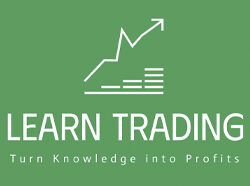For traders in the UK, selecting the appropriate broker for futures trading can significantly impact trading efficiency, cost-effectiveness, and overall success. Futures trading is the process of buying and selling financial products with contracts that state the trade will be carried out at a set price on a date in the future. This dynamic trading method offers chances across multiple markets, such as commodities, indices, and interest rates. In this article, we will discuss the important factors to consider when choosing a futures trading broker in the UK. We will also provide a detailed overview of essential features, such as trading tools, risk management, and customer support.
Learning futures contracts Trading
Futures trading is built around contracts that commit buyers and sellers to transact an item at a particular price on a future date. These contracts are extensively utilised in commodities, such crude oil, as well as in financial instruments, like as stock indexes or interest rates. Traders in the futures market speculate on price swings and seek to profit from shifts in value.
While the market offers huge potential gains, it also comes with hazards. Effective risk management, understanding margin needs, and real-time tracking of price swings are critical for success. With the appropriate broker, these issues can be navigated more confidently.
Key Features of Futures Trading Brokers in the UK
1. Regulation and Security
The first priority when selecting a broker is ensuring it is regulated by the Financial Conduct Authority (FCA). FCA-regulated brokers must adhere to strict financial rules, providing traders with a secure environment and safeguards such as segregated client funds. Some brokers also participate in the Financial Services Compensation Scheme (FSCS), protecting traders’ funds up to £85,000 in case of insolvency.
2. Trading Tools and Platforms
Top brokers offer advanced trading tools for analyzing price movements, performing technical analysis, and executing trades in real time. A well-designed online trading platform with customizable charting tools is vital for monitoring the futures market efficiently.
For example, brokers like Interactive Brokers provide robust platforms with comprehensive trading tools. These platforms offer access to real-time data, risk management features, and automated strategies that cater to both beginners and experienced traders.
3. Range of Futures Contracts
A good futures broker will provide access to a wide selection of futures contracts. From commodity futures, such as crude oil and gold, to contracts tied to indices and interest rates, having diverse options helps traders capitalize on various market opportunities.
4. Margin Requirements and Risk Management
Futures trading requires traders to meet specific margin requirements, which act as collateral for holding positions. Different brokers have varying margin policies, and understanding these requirements is crucial for avoiding account liquidation during adverse price movements.
Brokers with risk management tools, such as stop-loss orders and margin alerts, can help traders mitigate the high risks associated with leverage in futures trading.
5. Customer Service and Support
Reliable customer service plays a significant role in a trader’s experience. Whether it’s help with setting up an account, resolving technical issues, or understanding margin policies, having responsive support can make trading smoother. Look for brokers with multiple support channels, including live chat, email, and phone support, available during trading days.
Top Futures Trading Brokers in the UK
1. Interactive Brokers
Interactive Brokers is one of the most reputable names in the futures trading market. It provides access to a vast range of futures contracts across multiple exchanges globally.
- Key Features:
- Advanced trading tools for technical analysis and charting.
- Competitive trading fees with a transparent structure.
- FCA-regulated for enhanced security.
- Low margin requirements suitable for traders with different account sizes.
2. Beirman Capital
Beirman capital is a popular broker for futures trading, offering a user-friendly platform alongside a range of trading tools. The broker specializes in providing access to commodity futures, indices, and forex futures.
- Key Features:
- Real-time price tracking and custom charting tools.
- Access to a demo account for beginners to practice futures trading.
- Regulated by the Financial Conduct Authority.
- Excellent customer service support available 24/5.
3. Saxo Bank
Saxo Bank is a premium broker for futures trading, known for its sophisticated trading platform and extensive range of financial instruments.
- Key Features:
- Offers over 200 futures contracts across commodities, indices, and interest rates.
- In-depth market analysis tools for traders.
- Transparent fee structure with competitive trading costs.
- Reliable customer service and support for new traders.
4. CMC Markets
CMC Markets is another well-regarded broker offering access to futures contracts. It’s known for its proprietary platform, which combines advanced trading tools with simplicity.
- Key Features:
- FCA-regulated and offers FSCS protection for traders’ funds.
- Real-time market insights and robust chart tools.
- Intuitive platform suitable for traders of all experience levels.
- Strong focus on risk management with tools like guaranteed stop-loss orders.
Risk Management in Futures Trading
One of the most critical aspects of trading futures is managing risks effectively. Due to the high leverage involved, losing money is a possibility if trades are not managed carefully. Here are some practical tips:
- Set Clear Stop-Loss Levels: Always define the maximum loss you’re willing to take on a trade. A stop-loss order ensures your losses are limited if the market moves against your position.
- Monitor Margin Levels: Keep track of margin requirements and ensure your account maintains sufficient funds to avoid liquidation.
- Diversify Your Trades: Avoid concentrating all your trades in a single asset class. Spreading investments across multiple futures contracts can reduce overall risk.
- Use Real-Time Data: Futures markets move quickly, and real-time price tracking is essential for executing trades at the right moment.
The Role of Technical Analysis
For traders in the futures market, technical analysis is a vital tool for predicting price movements. Brokers offering advanced chart tools allow traders to identify patterns, trends, and support and resistance levels. Some commonly used technical indicators include:
- Moving Averages
- Relative Strength Index (RSI)
- Bollinger Bands
- Fibonacci Retracements
By integrating these tools into your trading strategy, you can make more informed decisions based on market data.
Why Choose FCA-Regulated Brokers?
Choosing brokers regulated by the Financial Conduct Authority ensures that your funds and trades are handled with the highest level of security. FCA regulation means:
- Brokers are required to segregate client funds from their own operational funds.
- Platforms must meet strict transparency and fairness standards.
- Traders are protected under the FSCS for up to £85,000 in case the broker becomes insolvent.
This level of oversight provides peace of mind and fosters trust between traders and brokers.
My view
Finding the appropriate broker is vital for success in the futures market. A reputable broker offers secure platforms, affordable costs, a selection of futures contracts, and comprehensive trading tools for real-time decision-making. Whether you’re interested in commodities futures like crude oil or financial products connected to interest rates, FCA-regulated brokers such as Interactive Brokers, IG Markets, Saxo Bank, and CMC Markets provide dependable and efficient services.
By focusing on risk management, employing technical analysis tools, and picking a broker with outstanding customer service, you may navigate the futures market with confidence and seek to reach your trading goals. Always ensure you understand margin requirements and the dangers involved before entering the market.



